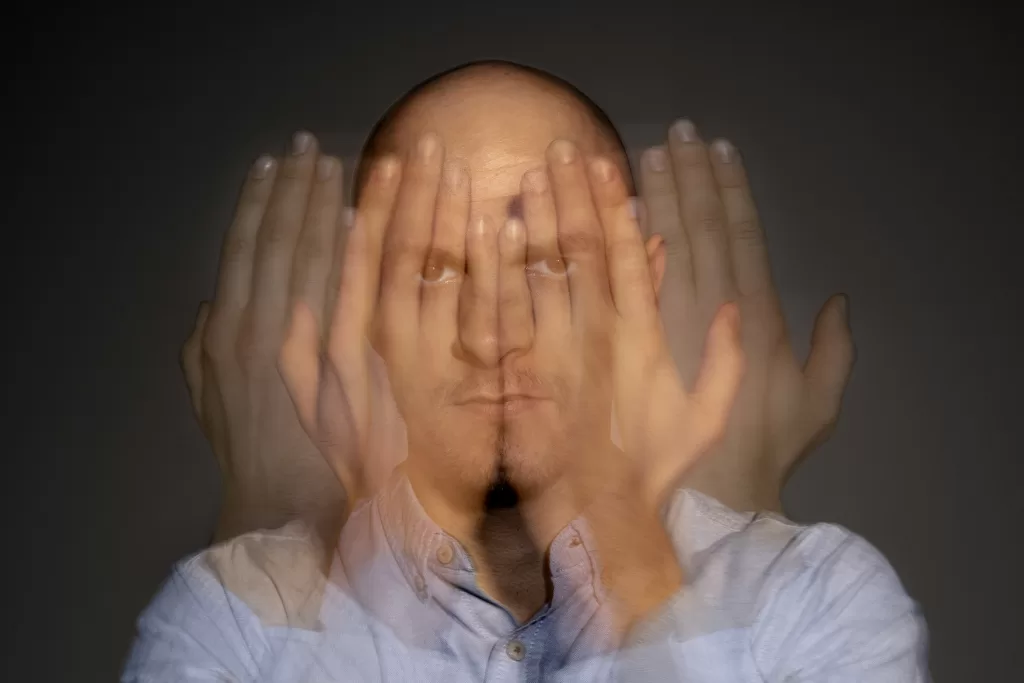What is Dual Diagnosis?

Dual diagnosis means that an individual has two separate but very interrelated diagnoses:
- A psychiatric problem
- An addiction problem
It is difficult to say which came first. What is important to note is that the person currently has both problems, which must be addressed together. One of the two areas can trigger a relapse in the other.
- Severe/major mental illness and a substance disorder(s)
- Substance disorder(s) and personality disorder(s)
- Substance disorder(s), personality disorder(s), and substance-induced acute symptoms that may require psychiatric care, i.e., hallucinations, depression, and other symptoms resulting from substance abuse or withdrawal.
How common is dual diagnosis?
Dual diagnosis is more common than you might imagine. According to a report from the Journal of the American Medical Association:
- Thirty-seven per cent of alcohol abusers and fifty-three per cent of drug abusers also have at least one serious mental illness.
- Of all people diagnosed as mentally ill, 29 per cent abuse alcohol or drugs.
What Kind of Mental or Emotional Problems Are Seen in People with Dual Diagnosis?
The following psychiatric problems are common in dual diagnosis, i.e., in tandem with alcohol or drug dependency:
- Depressive disorders, such as depression and bipolar disorder
- Anxiety disorders, including generalized anxiety disorder, panic disorder, obsessive-compulsive disorder, and phobias
- Other psychiatric disorders, such as schizophrenia and personality disorders.
Depression
Depression is a serious medical illness that involves the brain. Symptoms can include:
- Sadness
- Loss of interest in or pleasure in activities you used to enjoy
- Change in weight
- Difficulty sleeping or oversleeping
- Energy loss
- Feelings of worthlessness
- Thoughts of death or suicide
Depression can run in families and usually starts between the ages of 15 and 30. It is much more common in women. Women can also get postpartum depression after the birth of a baby. Some people get seasonal affective disorder in the winter. Depression is one part of bipolar disorder.
There are effective treatments for depression, including antidepressants and psychotherapy. Most people do best using both, as Hope Trust practises.
Bipolar disorder (also called manic-depressive illness)
Bipolar disorder is a serious mental illness. People who have it experience dramatic mood swings. They may go from being overly energetic, “high”, and irritable to sad and hopeless and then back again. They often have normal moods in between. The upbeat feeling is called “mania.” The down feeling is depression.
Untreated bipolar disorder can result in damaged relationships, poor job or school performance, and even suicide. However, there are effective treatments: medicines and psychotherapy. A combination usually works best, as we have seen with several cases at Hope Trust.
Anxiety
Fear and anxiety are part of life. You may feel anxious before you take a test or walk down a dark street. This anxiety is helpful – it can make you more alert or careful. It usually ends soon after you are out of the situation that caused it. But the anxiety does not go away for millions and worsens over time. They may have chest pains or nightmares. They may even be afraid to leave home. These people have anxiety disorders. Types include:
- Panic disorder
- Obsessive-compulsive disorder
- Post-traumatic stress disorder
- Phobias
- Generalized anxiety disorder
Treatment can involve medicines, therapy, or both, as is done at Hope Trust.
Schizophrenia
Schizophrenia is a severe, lifelong brain disorder. People with it may hear voices, see things that are not there or believe that others are reading or controlling their minds. Other symptoms include
- Unusual thoughts or perceptions
- Disorders of movement
- Difficulty speaking and expressing emotion
- Problems with attention, memory, and organization
No one is sure what causes schizophrenia, but your genetic makeup and brain chemistry probably play a role. Medicines can relieve many of the symptoms. You can reduce relapses by staying on your medication as long as your doctor recommends. With treatment, many people improve enough to lead satisfying lives.
Personality Disorders
Personality disorders are long-term patterns of thoughts and behaviours that cause serious problems with relationships and work. People with personality disorders have difficulty dealing with everyday stresses and issues. They often have stormy relationships with other people. The exact cause of personality disorders is unknown. However, genes and childhood experiences may play a role.
Which develops first—substance abuse or emotional problems?
It depends. Often, the psychiatric problem develops first. To feel calmer, peppier, or more cheerful, a person with emotional symptoms may drink or use drugs; doctors call this “self-medication.” Frequent self-medication may lead to physical or psychological dependence on alcohol or drugs. If it does, the person suffers from not just one problem but two. In adolescents, however, drug or alcohol abuse may merge and continue into adulthood, contributing to the development of emotional difficulties or psychiatric disorders.
In other cases, alcohol or drug dependency is the primary condition. A person whose substance abuse problem has become severe may develop psychiatric disorder symptoms.
How can a physician tell if the person’s primary problem is substance abuse or a psychological issue?
During the initial examination, it may not be easy to tell. Since many symptoms of severe substance abuse mimic other psychiatric conditions, the person must go through a withdrawal from alcohol and drugs before the physician can accurately assess whether there’s an underlying psychiatric problem as well.
What should be treated first if a person has both an addiction problem and an emotional problem?
Both problems should be treated simultaneously. When neither illness is treated, one condition can make the other worse. Treatment is less likely to be effective when only one illness is treated.
Dual Diagnosis Treatment at Hope Trust
Hope Trust has gained vast experience in the treatment of such cases. The qualified and experienced team, comprising psychiatrists, psychologists, and physicians, works together to address dual-diagnosis cases with excellent results.
For an online or in-person appointment with an expert, click www.hopetrustindia.com